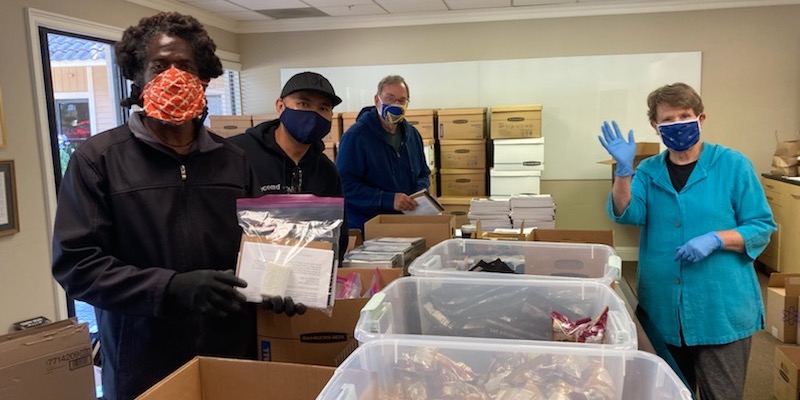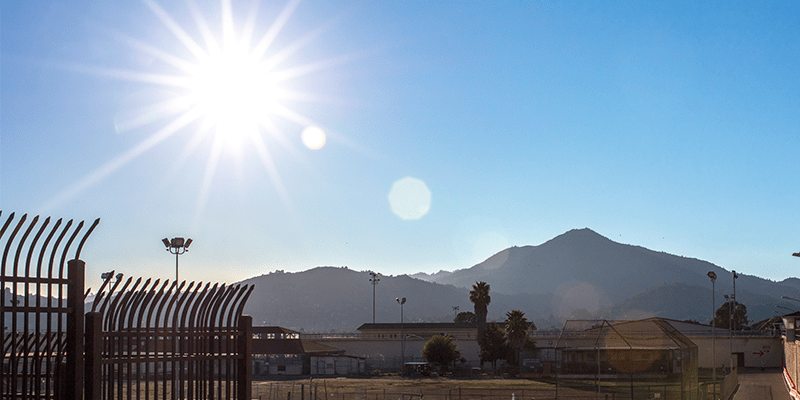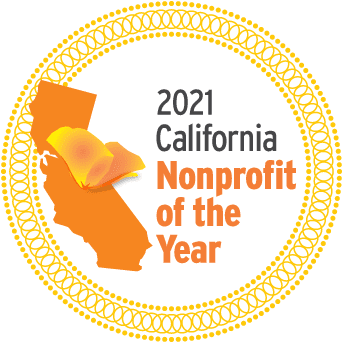In June of 2020, San Quentin became one of the largest COVID-19 hotspots in the country with over 2,200 confirmed cases of the virus among the incarcerated population (approximately 75% of the total population) and (as of August) 25 deaths. Many of our current and former students are among these numbers. Hundreds of San Quentin staff members have also been infected, contributing to the fear, despair, and deteriorating conditions inside.
In an effort to mitigate the devastating effects of the virus on the physical and mental health of those impacted by the prison system, the Prison University Project has pivoted from providing education to roughly 10% of San Quentin’s residents, to providing intensive support to the whole community at San Quentin as well as to other prisons in California. A comprehensive overview of these initiatives is summarized below.
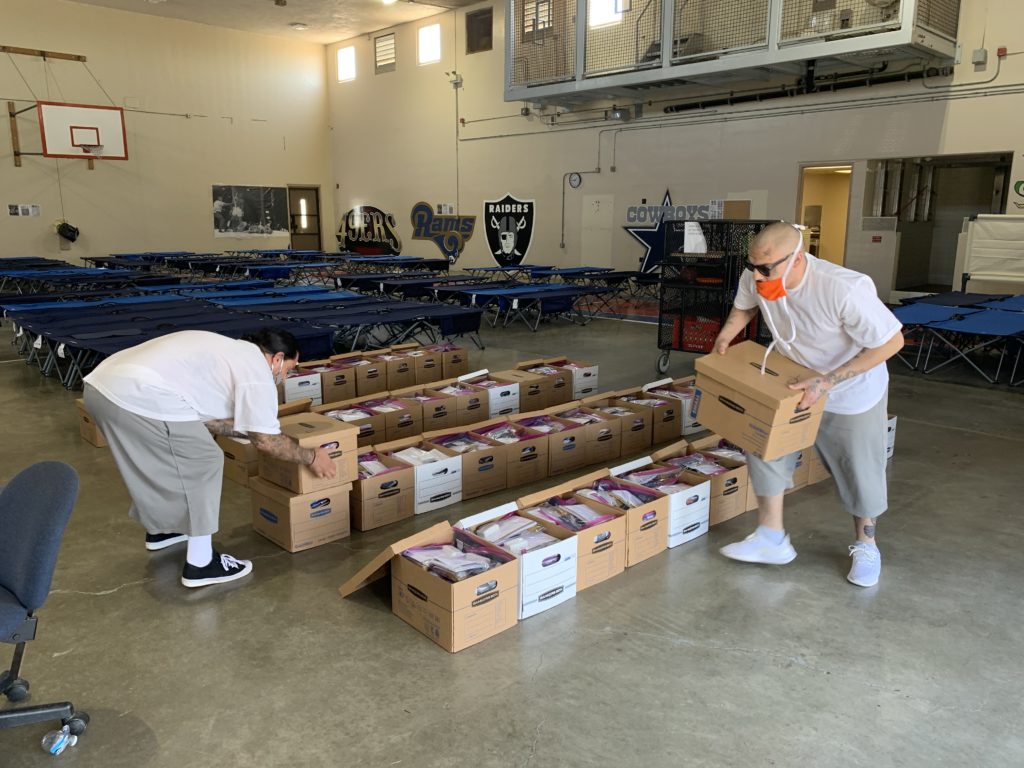
Care Packages
In April, we sent care packages—healthy snacks, sanitation supplies, COVID information, and letter writing materials—to the nearly 3,800 residents of San Quentin.
Each one was packed in a gallon-sized Ziploc bag filled with beef jerky, tuna fish, trail mix, a bar of soap, a small pad of paper, envelopes, stamps, pens (or pen fillers, for those in housing units where regular pens are not allowed), and three articles: Why Soap Works, by Ferris Jabr; The Pandemic is a Portal, by Arundhati Roy; and Five months on, what scientists now know about the Coronavirus, by Robin McKie. We also included a letter that explained the package.
In July, we sent a similar package to the nearly 4,200 residents of Avenal State Prison.
In early August, we sent a second round of care packages to San Quentin. These contained beef jerky, halal jerky, tuna fish, energy bars, stamped envelopes, pads of paper, pens (or pen fillers for restricted units), colored pencils (or 1/2 size of color pencils for restricted units), bars of soap, a washcloth, toothpaste, cough drops, informational articles, and a packet from the San Quentin Library with the most-requested CDCR forms and information.
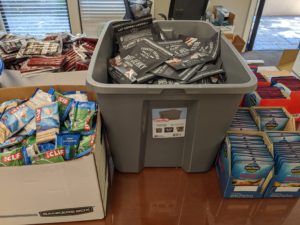
The response from inside has been unexpected and profound. Over the past few months, we have received hundreds of thank-you letters, some from our students (who comprise about 10% of the overall San Quentin population). Others came from the vast communities in San Quentin’s Reception and on Death Row, transfers to San Quentin from the California Institution for Men, and those incarcerated at Avenal. A full library of letters from San Quentin from the summer of 2020 is available here. While everyone expressed appreciation for the packages’ contents, the one thing they stressed the most was the impact of the message it conveyed: There are people on the outside who are thinking of you, and who care.
At the time of writing, we are currently organizing a care package delivery to the California Institution of Men and the California Institution for Women in Chino. Once these deliveries are made, we will have provided over 15,000 care packages to incarcerated people in California.
If you’d like to contribute to these efforts, please visit our care package donation page.
Care Package Initiative Quick Facts
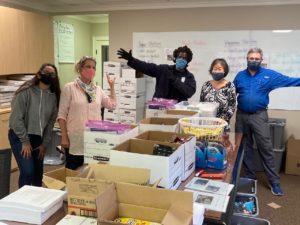
- 40+ volunteers donated 300+ hours
- 14,600 bars of soap
- 44,000 stamped envelopes
- 2,137.5 lbs of fish
- 1,781.25 lbs of beef jerky
- 22,800 pens
- 11,400 lined notepads
- 500+ thank you letters received
CDCR Staff Support
Because the health and wellness of the corrections staff is a primary factor in ensuring the safety of the incarcerated residents, we are also supporting prison staff with food trucks and a mobile shower unit to help mitigate the outbreak of COVID-19. This effort supports the physical and mental health and safety of staff, stabilizes essential operations at the prison, and helps contain the spread of COVID-19 inside San Quentin, throughout the county of Marin, and beyond.
The mobile showers were delivered and installed mid-July, and are fully operational for San Quentin staff to use at the end of their shifts throughout the day. This initiative was spearheaded by members of our organization’s Advisory Council, and generously funded by private donors. The Hilton San Francisco Union Square has graciously donated all shampoo, conditioner, and body wash for the operation of the showers, and Key Events stepped into action to voluntarily coordinate the procurement and delivery.
We organized food trucks at Avenal State Prison and the California Institution for Men as well.
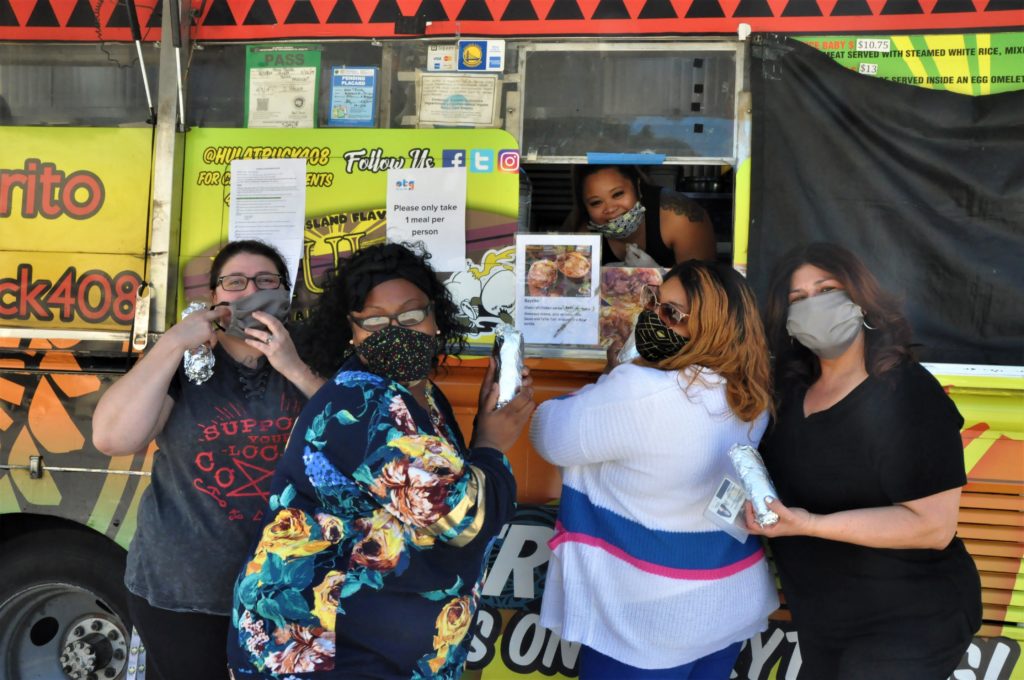
Material Support for the Incarcerated Community
San Quentin’s leadership has allowed us to send books, magazines, textbooks, art supplies, hand-crank radios, and digital content (via closed circuit television) to people on Death Row and other areas of the prison outside of the general population areas. Since those inside can’t access the library as usual, we have also been able to secure 19 library carts to support the staff in delivering materials throughout the prison.
Advocacy
We are communicating frequently with prison leadership, advocacy organizations, our reentry network, legal professionals, funders, and others to identify how we can support each other and, most importantly, what we can do to save lives and lessen the devastating impacts of the crisis.
These organizations include:
Bonafide
Ella Baker Center
Re:store Justice
Amend at UCSF
Reform Alliance
Uncommon Law
Rosen, Bien, Galvan & Grunfeld, LLP
Prison Law Office
Prisoner Reentry Network
Northern California Innocence Project
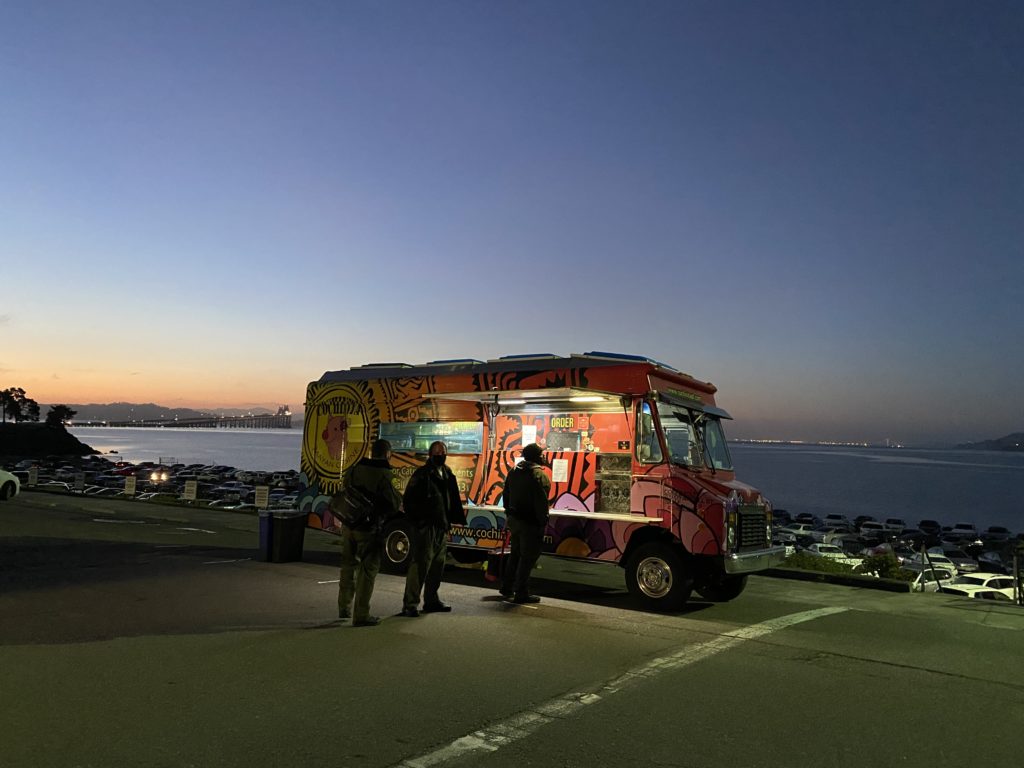
Please note that the Prison University Project became Mount Tamalpais College in September 2020.
